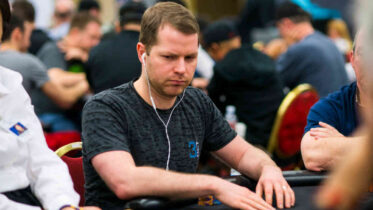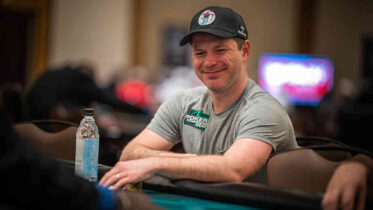Poker tournaments might just be the most entertaining format of Texas Hold’em, as they offer the potential for massive rewards and a chance to compete with the best.
While many players play poker tournaments daily, few know what it takes to be a winner and prosper in this game.
A single article would be too short to teach you all the things you need to do at tournament poker tables, but we can at least teach you a few things you should not.
Here is a list of the top 10 things to avoid in poker tournaments that will help you lose less often and get close to that final table more consistently.
- Mistake #1 – Exercising Poor Bankroll Management
- Mistake #2 – Playing Too Wide Early On
- Mistake #3 – Being Too Results Oriented
- Mistake #4 – Not Table Selecting Enough
- Mistake #5 – Slow Playing Too Often
- Mistake #6 – Being Too Passive or Aggressive
- Mistake #7 – Underestimating Your Opponents
- Mistake #8 – Not Stealing Enough in Late Game
- Mistake #9 – Not Understanding ICM
- Mistake #10 – Not Studying Poker Enough
Mistake #1 – Exercising Poor Bankroll Management
Bankroll management is everything in tournament poker, and if you fail in this area, you are not likely to succeed in the game format overall.
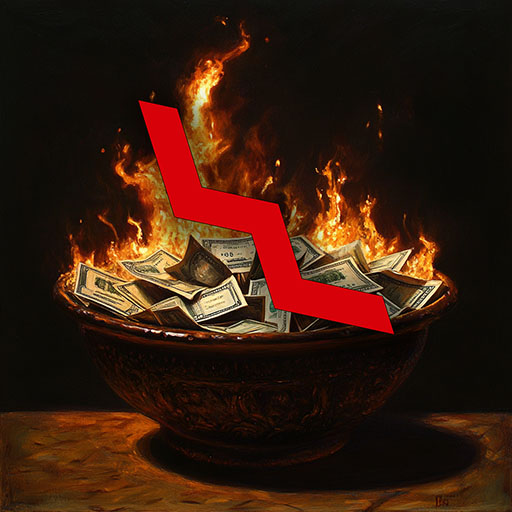
The importance of practicing good bankroll management cannot be overstated, as tournament poker is an extremely volatile game.
Every time you sit down to play a tournament, you are playing against hundreds of poker players, and the vast majority of the buyins will be distributed to the few who get to the finish line.
No matter how good you are, you will not be at the final table every time you play, and you will go through significant downswings.
Prepare for this by making sure you have enough buyins behind to sustain a substantial downswing and make sure to keep playing your game whether things are going well or not.
Mistake #2 – Playing Too Wide Early On
The early stages of poker tournaments are much different from the late stages and it is critical to understand this and adjust appropriately.
While you will definitely want to steal blinds a lot in the late game, there is almost no value to adding another blind and a half to a stack of 100 or more bbs.
Instead, the early stages are all about patience and playing good hands, mostly in position. While you do this, less experienced players will force the issue and give you their chips.
If you are not careful, you can easily find yourself becoming one of these donators at the table that everyone is happy to be in a pot with.
Make sure to play only the best hands from early positions, and only expand your range to include good speculative hands and a few bluffs in positions like the button and cutoff in the early levels of a poker tournament.
Mistake #3 – Being Too Results Oriented
We already mentioned that variance in poker tournaments can be harsh when talking about bankroll management, and we must reiterate it once again.
One of the big problems MTT players often face is that they care too much about the short-term results of the tournaments they play in. If they win a tournament, they think they are Phil Ivey. If they don’t cash ten in a row, they go on tilt and throw their bankroll away in the casino pit.
If you want to be a successful tournament poker player, you need to master your poker mindset. Instead, just focus on playing fundamentally good poker, and the results will come without a doubt.
If you allow your emotions to get into the mix and your results to become the driving factor in how you play, you may turn from a winning player into a losing one mid-way through a poker tournament.
Mistake #4 – Not Table Selecting Enough
Table selection is an important thing for cash game players, but it can also be very important in poker tournaments as well.
If you have an option between playing a $10,000 buyin tournament filled with the best players in the world and a $2,000 tournament filled with recreational players, you should almost always opt for the latter.

The reason should be self-evident. Even if you are a very good player, you might be only breaking even in the $10k, while at the same time being a 30% winner in the $2k.
So, you are effectively winning $600 every time you join the $2k while simply breaking even by playing the $10k.
The same logic can be applied at lower stakes and in online tournaments. What’s more, some poker sites offer significantly softer tournaments than others at the same buyin levels.
So, before you blindly jump into an event, make sure you weigh all your options and try to play in the games where you have the highest possible edge.
Mistake #5 – Slow Playing Too Often
We have all heard Phil Hellmuth talk about how he is going to trap his opponent in the next hand they play so many times, but is that actually an efficient strategy in tournament poker?
Trapping with big hands is definitely a part of poker and a strategy worth considering once in a while, especially when the stacks are somewhat deep.
However, slow playing a big hand can also backfire in a big way, as you give your opponent the pot odds to allow them to catch up and outdraw you with a hand they had no business seeing the river with.
What’s more, if you slow play your monsters too often, you will end up losing value against hands that would have paid you off.
Many players tend to overplay medium-strength hands and draws in early tournament play, and you want to charge these players to build up a stack through them as early as possible.
The next time you flop a set and face a bet, put in a big raise and watch your opponents pay you off with all sorts of trash that you would not expect to see.
Mistake #6 – Being Too Passive or Aggressive
Winning in poker is a balancing act. You must play aggressively, but at the same time should not overdo it and be a maniac. The best poker players in the world balance their ranges in such ways that they make themselves unexploitable at all times.
Average poker players, on the other hand, tend to be too passive or too aggressive, and neither of these is the right way to win.
Being too aggressive means you will often put yourself into spots where you are forcing the issue while your opponent simply has the best hand. You value-own yourself and end your tournament with a bluff you never should have tried.
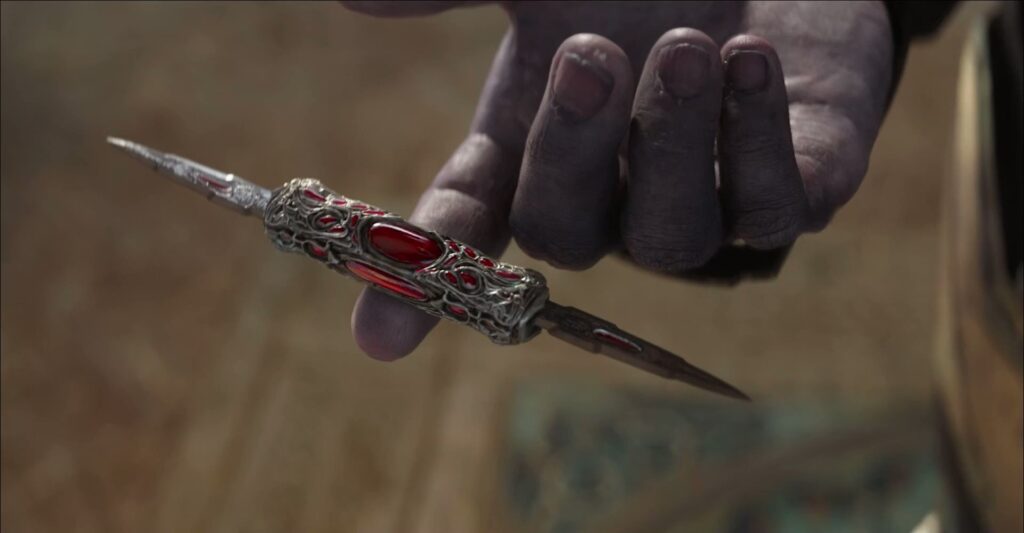
On the other hand, being too passive is even worse, as it will make you easy to play against and allow your opponents to dictate the action.
The answer, of course, is in balancing your ranges and finding ways to have both value and bluffs across the board while being the one making the bets more often than the one calling them.
Mistake #7 – Underestimating Your Opponents
Multi table tournaments are filled with all sorts of players. Some of them are amazing pros, and others are recreational players who don’t play at a very high level at all.
One common mistake tournament poker players make is they underestimate players and put them in the wrong brackets all the time.
For instance, players tend to make generalizations about players based on their appearances, age, gender, and other factors that don’t really have too much to do with the game.
Instead of making such generalizations, try to assess every player based on the way they play their hands during the first hour you spend playing with them.
You won’t find out everything there is to know about a player’s game in one hour, but you will definitely find out a lot more than you knew before you saw them play any hands at all.
Don’t underestimate anyone and assume everyone is a decent poker player until they show you hard evidence to the contrary.
Mistake #8 – Not Stealing Enough in Late Game
Just like the early game in MTTs is the time to be patient and sit tight, the late game is the time to expand your ranges and start stealing as many chips as possible.
As the chip stack-to-pot ratio goes down and the number of BBs you have in your stack dwindles, the value of stealing the blinds and antes increases dramatically.
For example, if you are sitting on a 15 bb short stack and steal the blinds and antes for an additional 2.5 bb, you increase your stack by some 17%, which is very significant.
By stealing the blinds a couple of orbits or re-stealing against a raise just once, you could double up your stack without ever having to show your cards.
Of course, being aggressive and stealing a lot will also mean you have to flip a coin once in a while, but that’s what late-stage tournament play is all about.
If you approach the late game too passively and wait for good hands, you will end up chipping down until a double-up is not even worth a lot anymore, and there is little hope of getting back into contention.
Mistake #9 – Not Understanding ICM
Many players, especially those transitioning from cash games to tournaments, have a problem of not understanding chip value in late games.
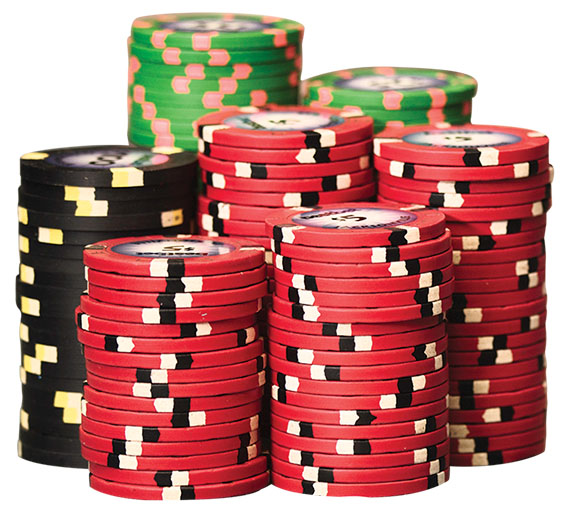
Since the money is spread out in poker tournaments and many players are paid, the chips you have are not worth as much as they would be if you were playing in a cash game.
That’s why the value of the chips you win is lower than the value of the chips you lose in a poker tournament, and you should be very careful in approaching certain late game situations.
All of this is described by the Independent Chip Model (ICM), which is an area of tournament poker play that many players aren’t even aware of.
If you want to be a winner in poker tournaments, studying ICM poker and practicing with ICM tools is an essential part of the learning curve.
Mistake #10 – Not Studying Poker Enough
Finally, it is important to understand that studying is a big part of being a successful poker player, regardless of your current level.
If you are a beginner, you have a lot to learn about poker strategy, and it will be easy to come across new knowledge that you can apply in your games.
If you are already a solid poker player, remember that there is always something new to learn and that poker is a game that always evolves and changes.
By spending some time each week to study your own hands, watch some poker training videos, or talk to your poker friends about the game, you will ensure that you don’t get left behind by players who put in this work. While it may not be as entertaining as actually playing, studying poker is an essential part of any winning poker player’s schedule.
To learn more, read our full guide on poker tournament strategy.

